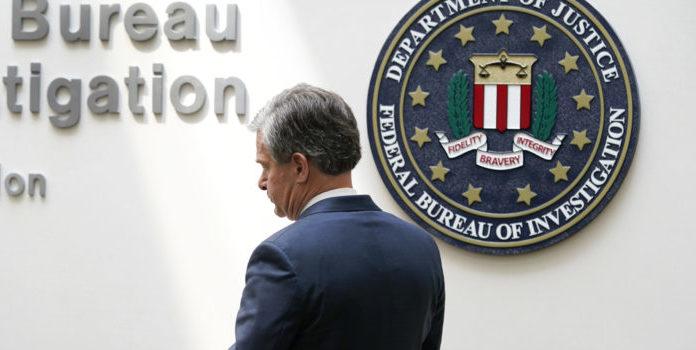(Ken Silva, Headline USA) House Republicans vow to pull no punches when investigating the FBI this session of Congress. The bureau may be monitoring them in return.
This is according to attorney Jesse Trentadue, who about a decade ago uncovered the FBI’s “sensitive informant program.” He said the bureau uses it to embed informants in the media, congressional offices, churches, defense teams and other “sensitive” institutions.
Trentadue never found direct evidence of FBI informants operating in Congress—but that’s because a federal court struck down his lawsuit seeking records about such activity in 2015.
Nearly eight years later, Trentadue told Headline USA that he hopes the newly formed House select subcommittee to investigate the weaponization of the federal government will resume what his lawsuit started. Doing so would be in Congress’s best interest, he said.
Trentadue first caught wind of the sensitive informant program in 2011, while prepping for a separate lawsuit. His friend and fellow investigator, Roger Charles, had discovered an FBI memo showing that a journalist at ABC News was also doubling as a federal informant.
“The journalist, whose name is not disclosed in the document labeled ‘secret,’ not only cooperated but provided the identity of a confidential source, according to the FBI memo—a possible breach of journalistic ethics if he or she did not have the source’s permission,” the Center for Public Integrity wrote in April 2011 about the finding.
While the story moved through the news cycle quickly with little impact, it prompted Trentadue to file records requests with the FBI to see if the bureau had other informants in the media, as well as places such as congressional offices, courts, churches, other government agencies and even the White House.
“I thought they’d come back and say, ‘We would never do that because that would be illegal and unconstitutional,’” he said. “Instead, they came back and said, ‘Yeah, we do that. We have manuals on that, but you can’t have them because of national security.’”
Trentadue filed a Freedom of Information Act lawsuit over the matter in 2012, seeking unredacted copies of the FBI Domestic Investigations and Operations Guide, the FBI Confidential Human Source Validation Standards Manual, the FBI Confidential Human Source Policy Manual and the FBI Confidential Human Source Policy Implementation Guide.
After about two years of litigation, the FBI moved for a summary judgment in April 2014, arguing that it should be allowed to exercise FOIA’s national security exemptions to keep the manuals secret.
Included with the FBI’s motion was a sworn declaration from Eric Velez–Villar, the assistant director of the FBI’s Directorate of Intelligence at the time, who told the court that Trentadue’s lawsuit threatened to “disclose critical tools utilized by the FBI in its investigations and intelligence gathering efforts.”
The head of the CIA’s litigation support unit, Martha Lutz, also submitted a sworn statement, telling the court that disclosing the FBI manuals could compromise CIA sources.
Trentadue opposed the FBI’s motion for summary judgment and the two parties argued at a November 2014 hearing. But after reviewing the unredacted manuals in private, Judge Kimball said the FBI could keep the manuals secret.
Kimball noted that government agencies are “entitled to considerable deference” when they exercise national security or law enforcement exemptions—unless there’s evidence of bad faith by government actors. Then, he said, the courts have no power to make government agencies disclose secret information.
Kimball ordered the case closed on June 9, 2015.
While some might defend the FBI’s sensitive informant program as necessary for national security, Trentadue said the records he’s uncovered—such as the FBI memo revealing its informant at ABC News—show that the bureau has far overstepped its boundaries.
With recent disclosures like the Twitter Files having shed more light on the agency’s role in partisan censorship campaigns and election-meddling, others might agree.
“This isn’t the case of the FBI investigating corruption,” Trentadue said. “The bureau is recruiting spies in an effort to infiltrate and influence.”
Ken Silva is a staff writer at Headline USA. Follow him at twitter.com/jd_cashless.

